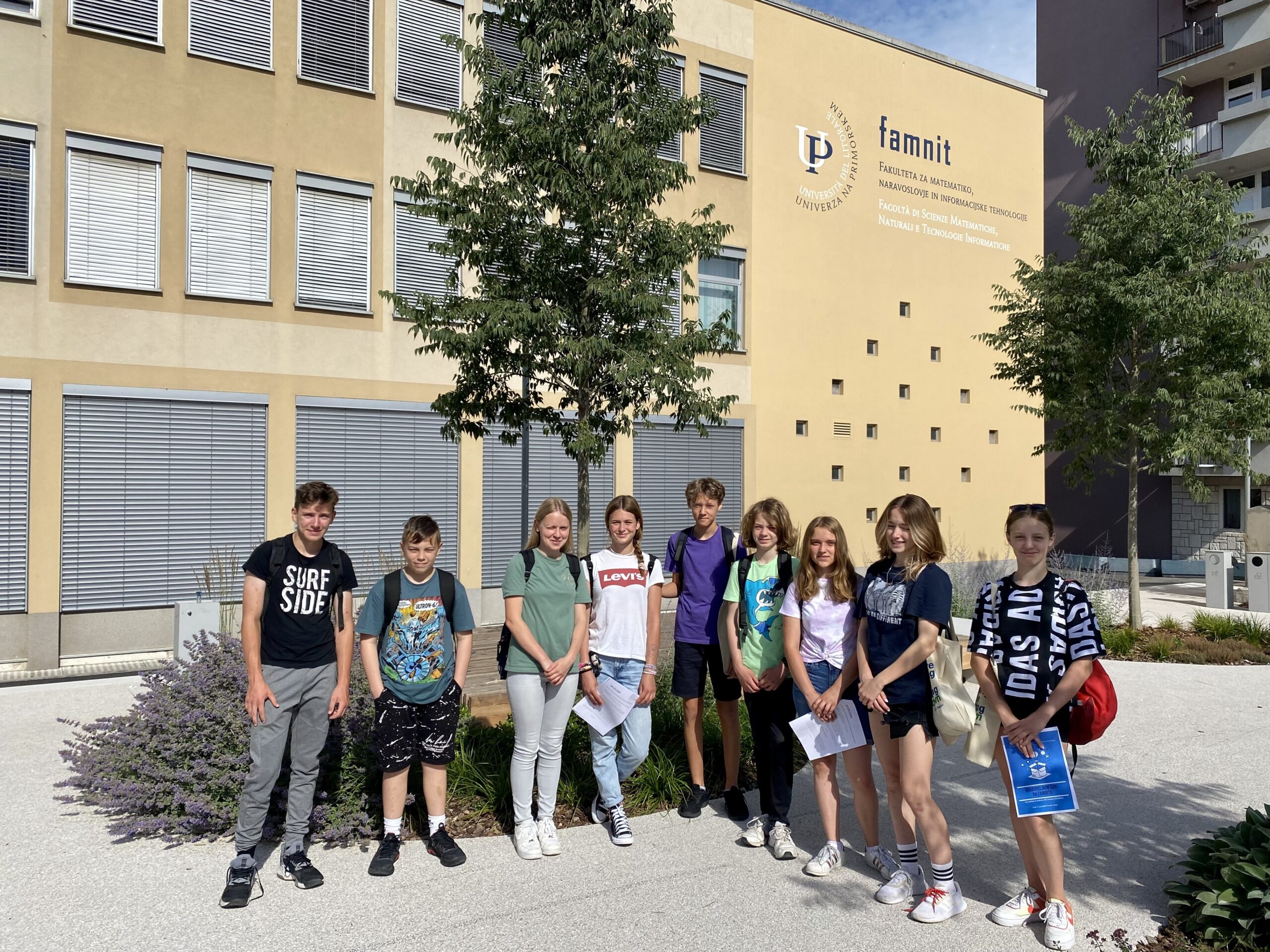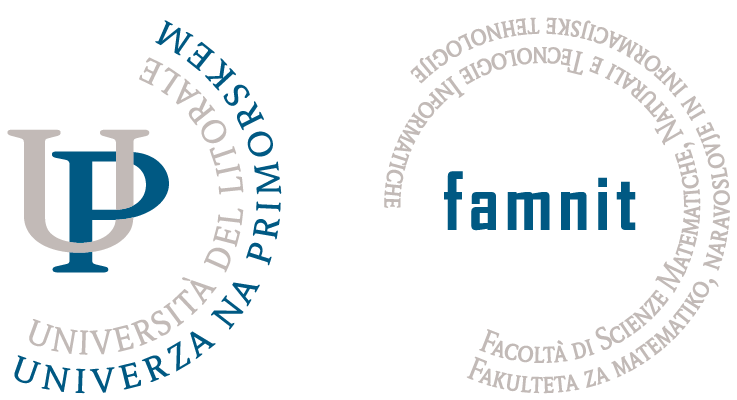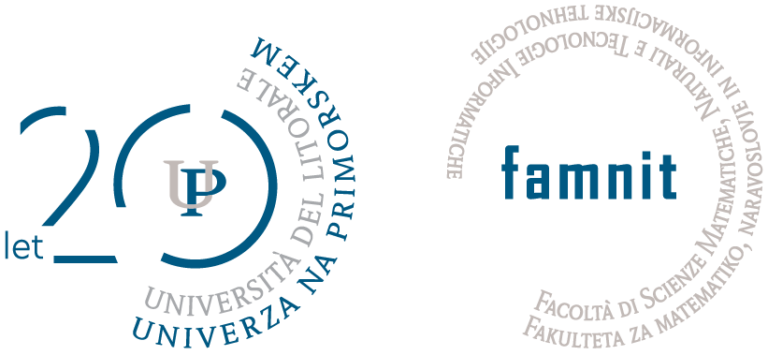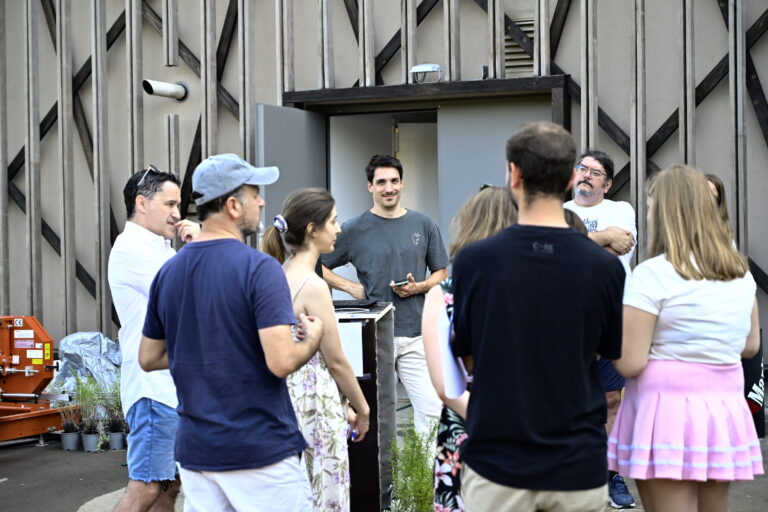Yesterday, June 7, 2022, our faculty hosted students from the Dušan Bordon Primary School who attended the NATURAL SCIENCE DAY AT FAMNIT.
Through various activities, lectures, experiments and workshops, they got to know the diverse world of science and had fun.
After the introductory greeting of the Dean and a walk around the faculty, dr. Alenka Baruca Arbeiter invited students to the world of research of medicinal and aromatic plants. As part of the workshop “Aromatic Plants and Distillation”, they learned about methods for obtaining essential oil and hydrolate.
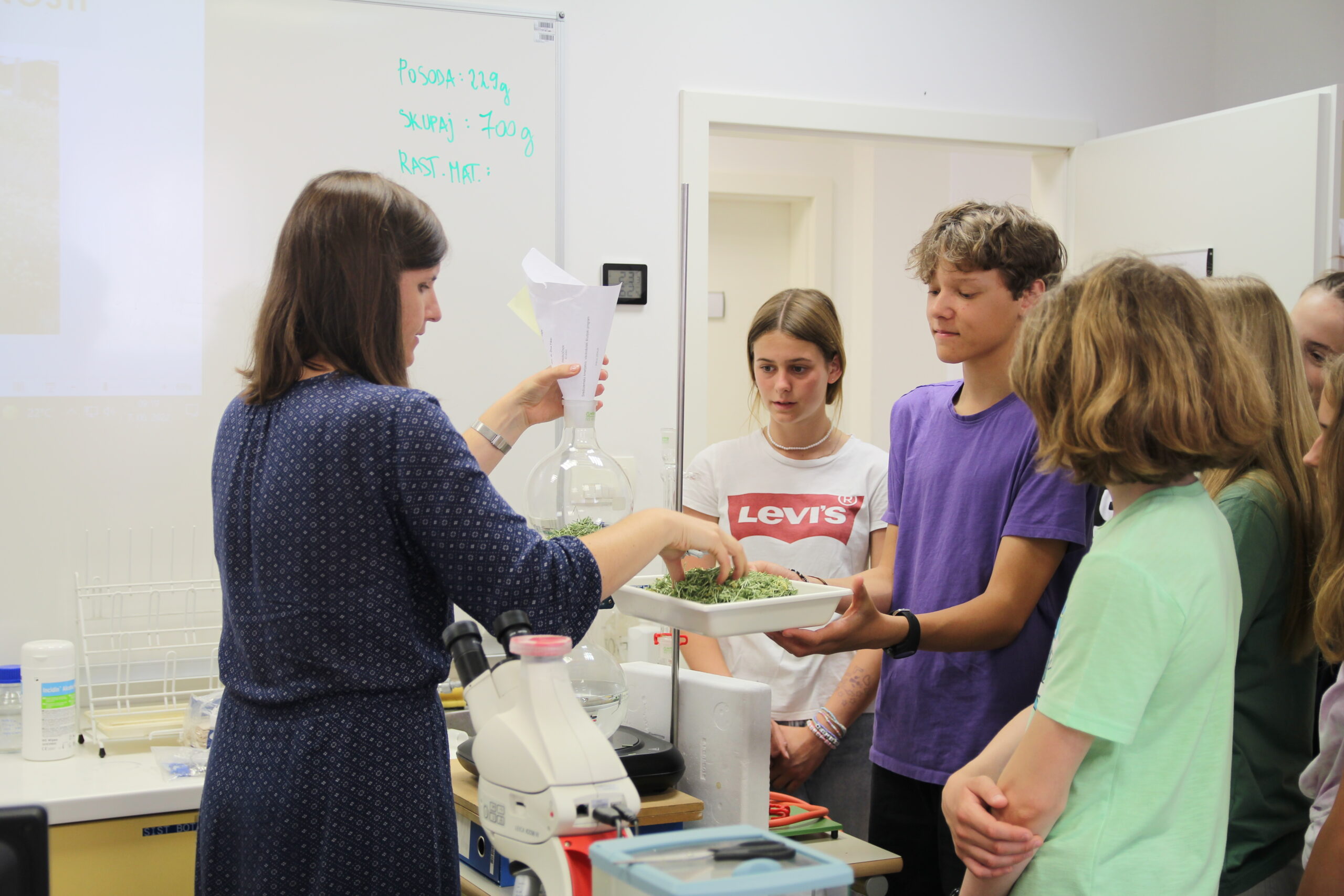
In the continuation of the science day, dr. Ana Zalokar explained, what the board game Snakes and Ladders and the movement of stock prices have in common. The workshop “From Snakes and Ladders to Stock Prices” gave them an insight into two examples of the Markov chain. They played board games and counted the routes, forecasting the weather and at the same time observing what was happening on the stock market.
Dr. Živa Fišer and students of Conservation Biology Lana Božič and Tinka Terčon presented to the students, how and in what way plants attract animals and how flowers differ to attract specific insects. The workshop “How and with what plants reward animals for spreading pollen?” Included a lot of work with practical aids, which the students were enthusiastic about: “We liked the most, that we could actually do something practical. It’s best when we can test ourselves in something.”
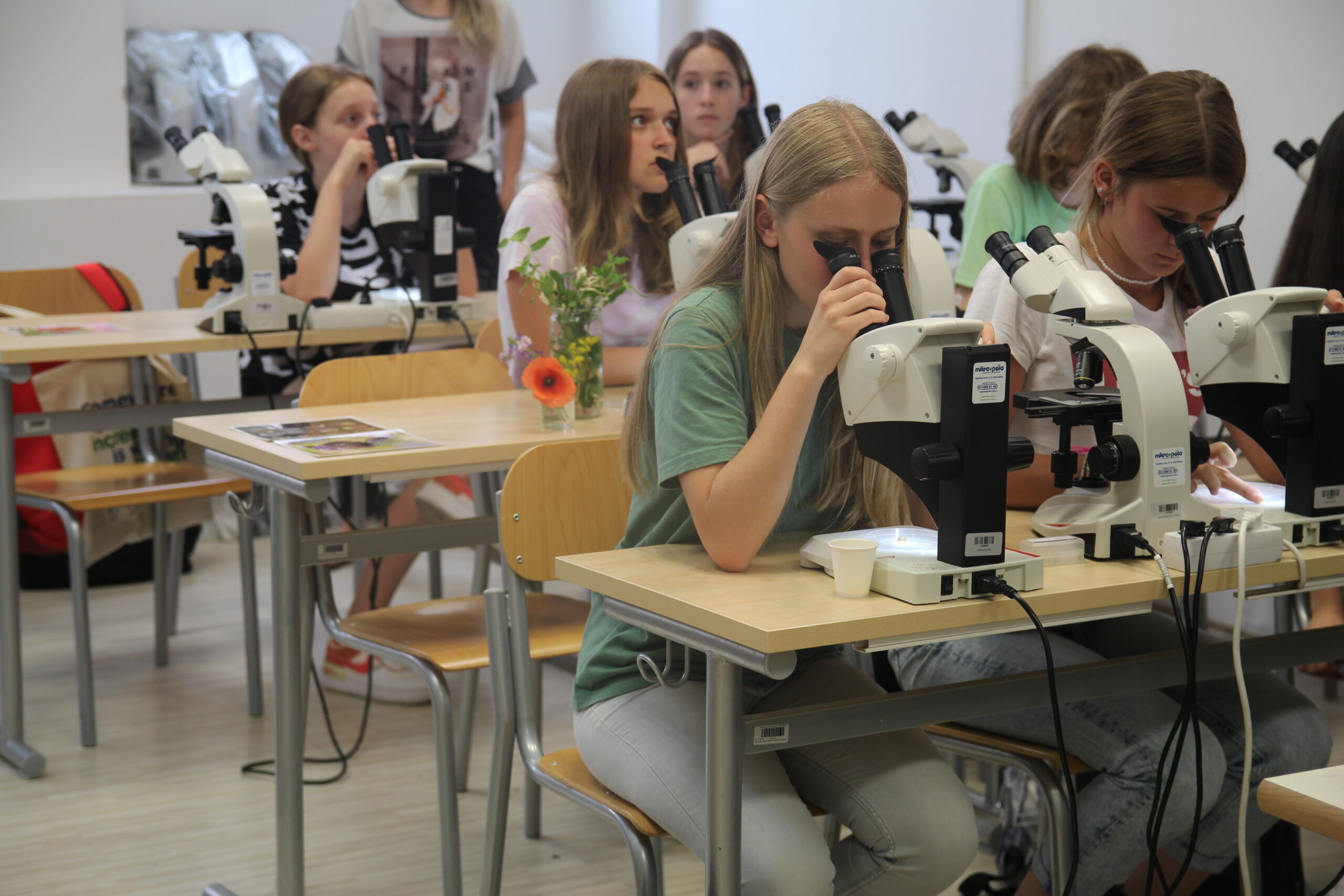
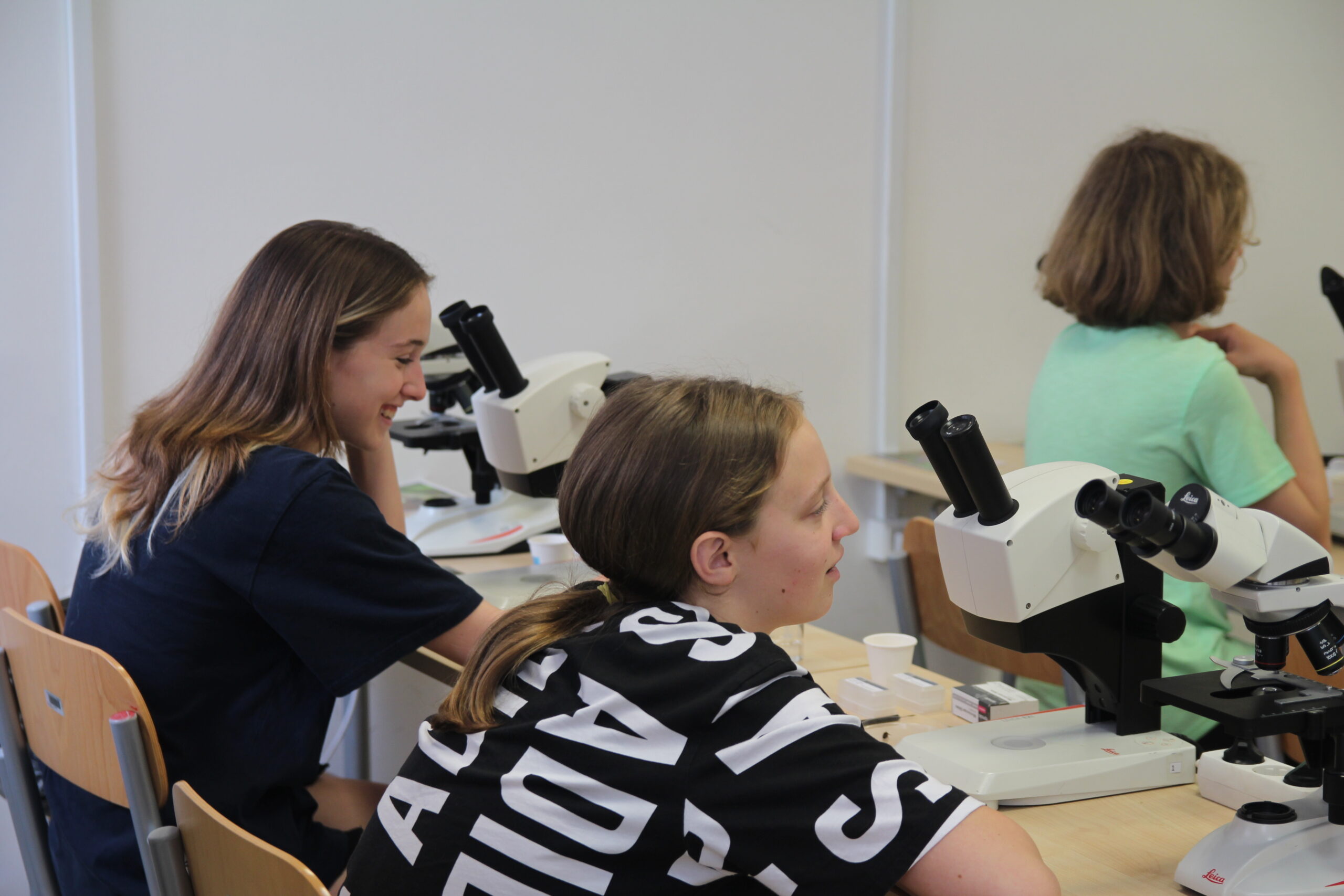
The science day ended with a workshop on mental health, where we talked about stress and the factors, that affect the feeling of stress and why it is important to seek help. Through the discussion and activities within the workshop “Are you ok? Ok!”, Eva Sedlašek and Manca Kosmač from the Department of Psychology tried to introduce students to the concept of mental health and the factors that affect it.
“It’s very important that we try to solve our problems. On the one hand, we have positive, protective factors that help us with our mental health, and on the other hand, there are risk factors that increase our distress. The number of factors is not as important as is the value on each individual factor,” concluded Eva Sedlašek.
